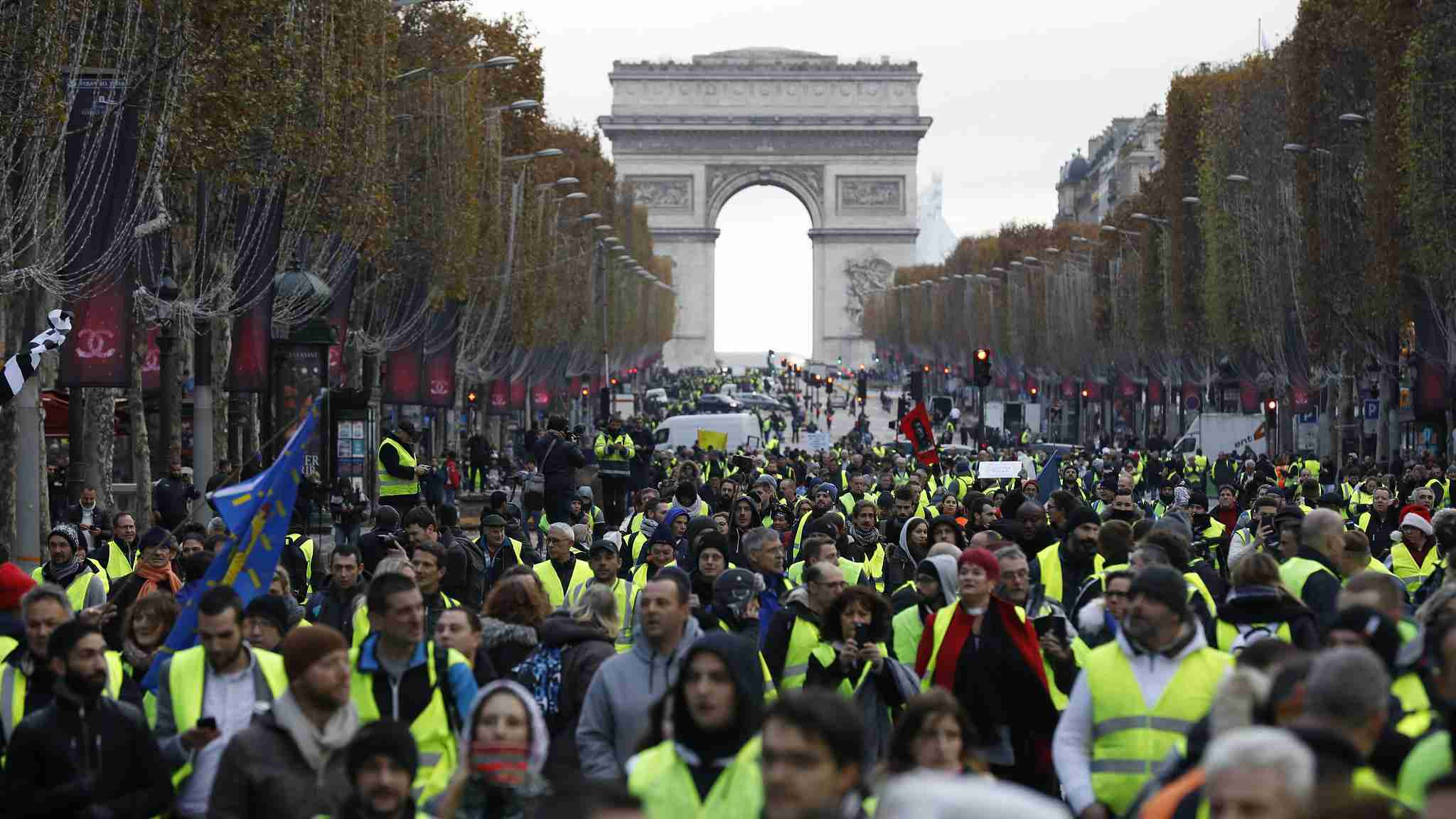
World
10:03, 25-Nov-2018
French police fire tear gas on fuel tax protesters in Paris
Updated
09:56, 28-Nov-2018
By Elena Casas-Montanez

Police in Paris have used tear gas and water cannons to disperse protesters in central Paris, on the second weekend of protests against rising fuel prices.
Roads were blocked across the country as the so-called "yellow vests" called on the government to listen to their complaints. According to the interior ministry, 81,000 people took to the streets, around 8,000 of them in Paris.

Police use a water cannon to disperse protesters. /CGTN Photo
Police use a water cannon to disperse protesters. /CGTN Photo
The "yellow vests" movement, named after the hi-vis jackets that French motorists must carry in their cars, which are also taken by the protesters, started as a protest over a rise in the tax on diesel that's due to come into effect on January 1 next year.
But it's become a lightning rod for a wide range of complaints over the cost of living, pitting mostly rural French demonstrators who say they need cars to get to work against what they perceive as urban elites who don't understand their day-to-day concerns.
"People are fed up of being flattened by taxes; it's a punitive policy, they treat you like a criminal if you drive, they treat you like a criminal if you own a diesel car," a demonstrator told CGTN.
"We want the government to do a U-turn, we want them to understand how people live, they're all living in a bubble where they've got no money worries, MPs moan about earning 5,000 euros a month, we earn 1,200 [or] 1,300," said another.
The complaint that President Emmanuel Macron is arrogant and out of touch is ubiquitous among these demonstrators; many chanted calls for him to resign.
In central Paris, several thousand protesters breached a police ban on demonstrating on the Champs Elysées to try and block the city's most famous avenue.
The protest quickly turned sour; some demonstrators tore up paving stones and hurled them at the police, while others ripped down fences from construction sites and used them to barricade the street. The police responded with tear gas and water cannons.
Interior minister Christophe Castaner blamed far right politician Marine le Pen for inciting violence. But these demonstrations were spontaneously organized via social media, and many demonstrators reject what they see as attempts by politicians on both the right and the left to co-opt them.
"Marine le Pen, the head of the Rassemblement National, the far-right party, thinks that many of these people will vote for her party in the European elections and in the next presidential elections in 2022, but my personal feeling is that those people who are angry at the political elite also think that Marine le Pen is part of the system," political analyst Jean-Yves Camus told CGTN.
The lack of central organization or clear aims makes it hard to judge where this movement will go next.
Over the last week, it's brought over a quarter of million people out onto the streets, and some polls show that more than 70 percent of voters back them.
The government is standing firm: it has refused to back down on the diesel tax rise, saying punitive taxes are necessary to discourage people from driving polluting cars.

SITEMAP
Copyright © 2018 CGTN. Beijing ICP prepared NO.16065310-3
Copyright © 2018 CGTN. Beijing ICP prepared NO.16065310-3